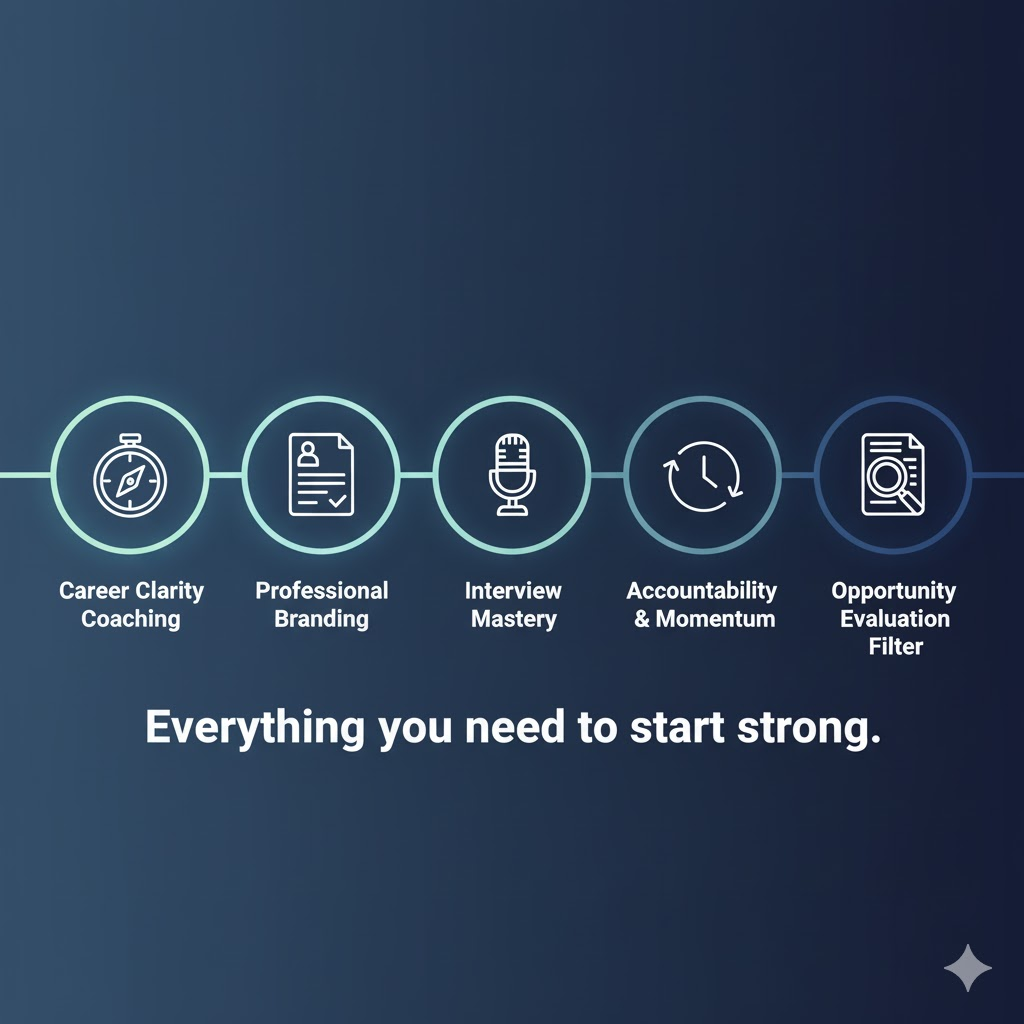

How to Land Your First Job After Graduation?
Graduation can leave you staring into a future that feels uncertain and overwhelming, but clarity starts with one focused step in the right direction.

Graduation can leave you staring into a future that feels uncertain and overwhelming, but clarity starts with one focused step in the right direction.
What You’ll Learn in This Blog
You’ve tossed the cap, hugged your friends, and heard that line on repeat —
“So, what’s next?”
If that question makes your stomach flip, you’re not alone. Post-grad life can feel like standing at the edge of a runway with no flight plan.
But here’s the thing:
You don’t need the perfect next step — you just need your next right move.
This guide will help you map it out — no fluff, no fortune-cookie advice. Just real progress, one smart decision at a time.
Let’s get you grounded, clear, and hired.
Before you send out fifty résumés, pause.
Direction beats speed — every time.
Here’s the framework:
You don’t need a 10-year plan — just a true north.
Clarity isn’t luck. It’s built.
Feeling uncertain about your next move?
Our Career Clarity process helps you cut through the noise and focus on what truly matters — aligning your strengths, values, and goals through The FutureStreet™ Five™.
Find direction. Build confidence. Move forward with purpose.
👉 Map Your Next Move with Us
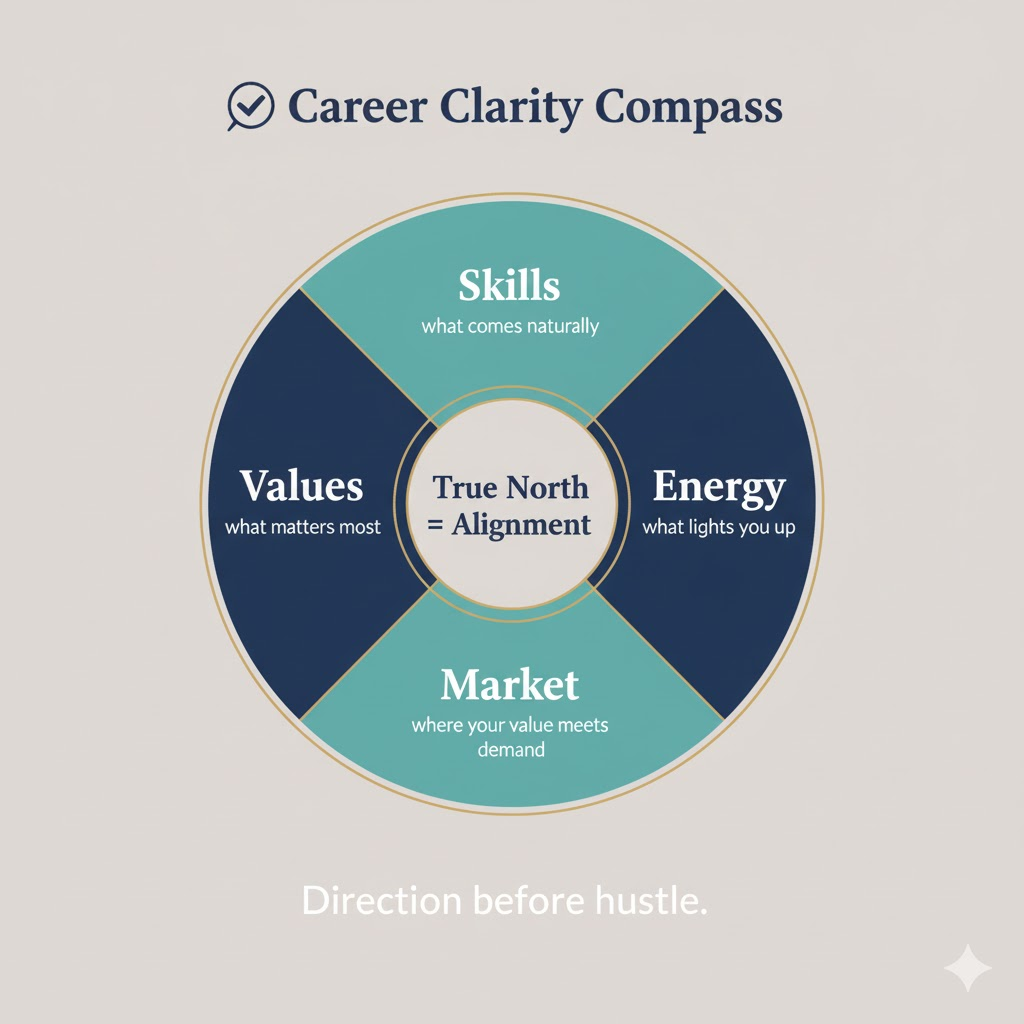
You don’t need a long résumé — you need visible proof that you can deliver.
Here’s how to show it:
You’re not building a mere résumé — you’re building a reputation.
First impressions matter — make yours count.
Our Professional Branding experts help you translate your experience into a magnetic résumé and LinkedIn presence that open doors.
Stand out. Get noticed. Get hired.
👉 Book Your Branding Audit or Coaching Session
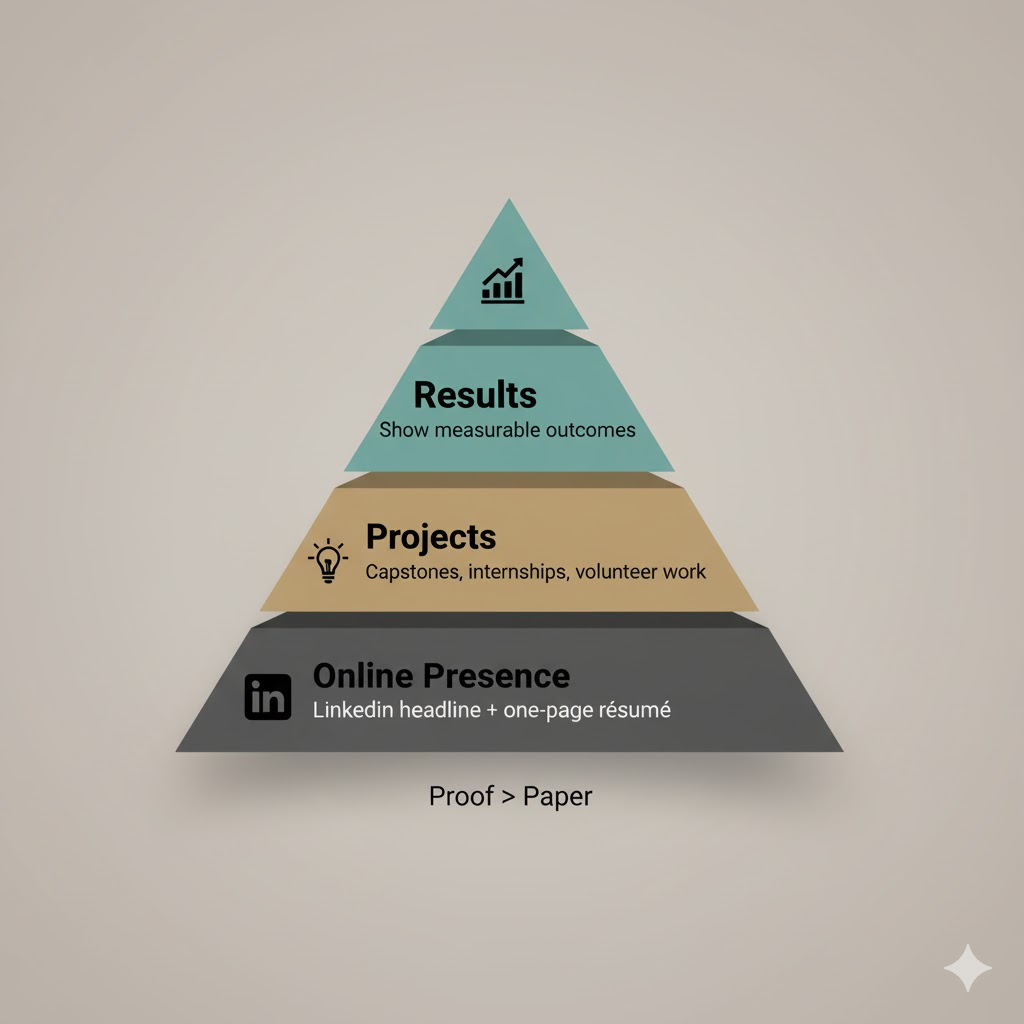
If every job requires experience, how do you get any? You build it yourself.
Try this:
Every skill you build now becomes currency later.
Momentum builds mastery.
Turn potential into proof.
With FutureKickoff™, you’ll gain real-world experience through guided projects, 1:1 coaching, and a proven framework for clarity and career momentum.
Confidence isn’t built — it’s earned through action.
👉 Claim Your Career Launch Coaching Session
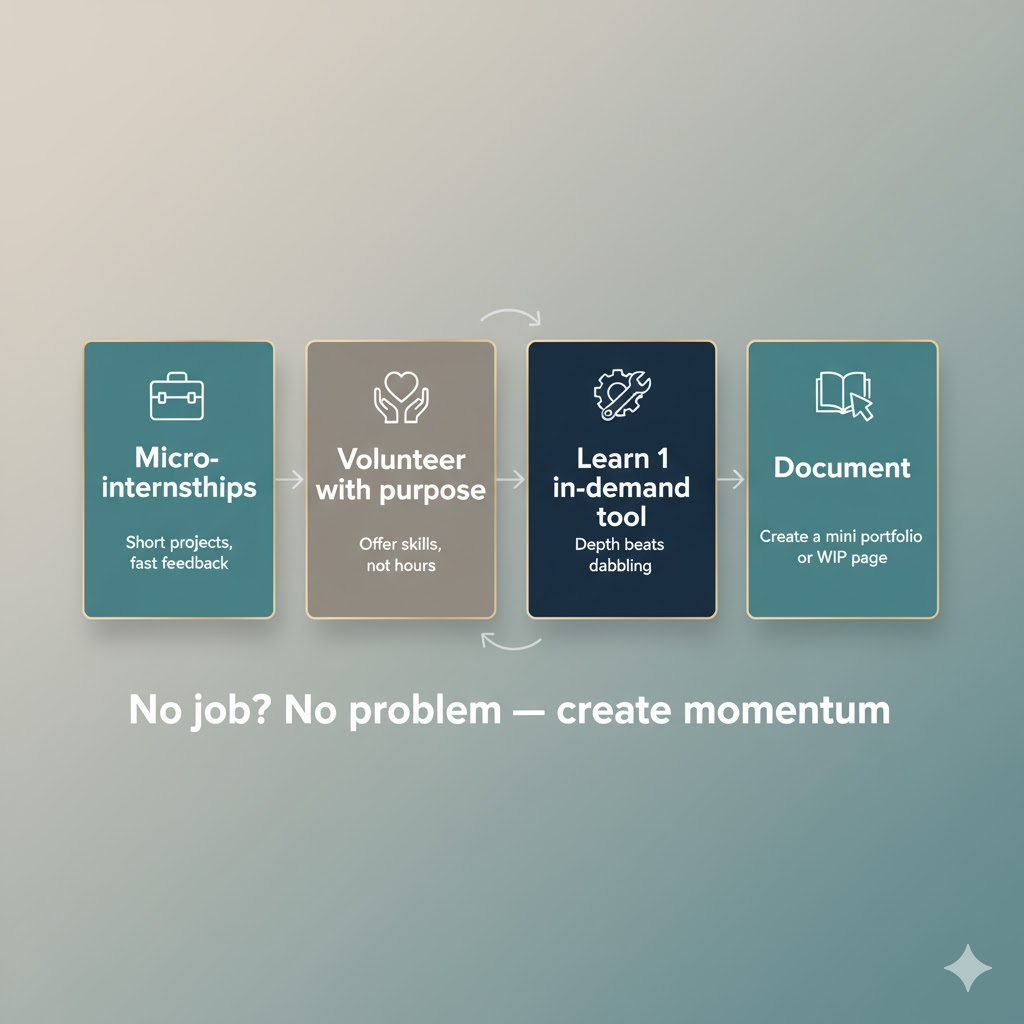
Networking isn’t begging for a job — it’s asking thoughtful questions and creating trust.
Try this rhythm:
You’re not asking for favors — you’re building familiarity. And that’s how opportunity finds you.
Your next opportunity is one conversation away.
Our Strategic Networking Workshop gives you the tools and confidence to connect, communicate, and convert conversations into career momentum.
Network with intention — and results.
👉 Learn How to Network Like an Insider
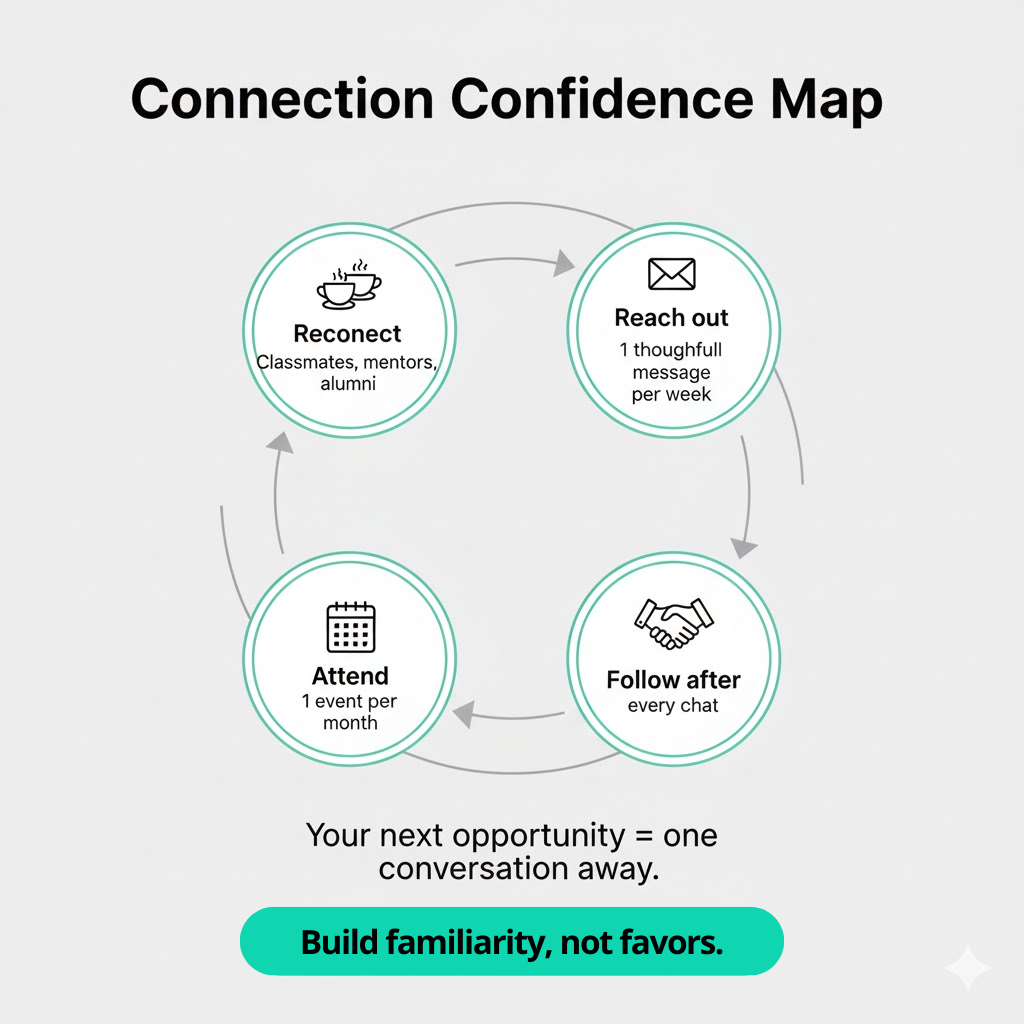
When you’re starting out, it’s tempting to apply to everything. But the fastest way to lose momentum is to chase every open role.
Here’s a better plan:
Coach’s Note: Quality gets interviews. Quantity burns energy.
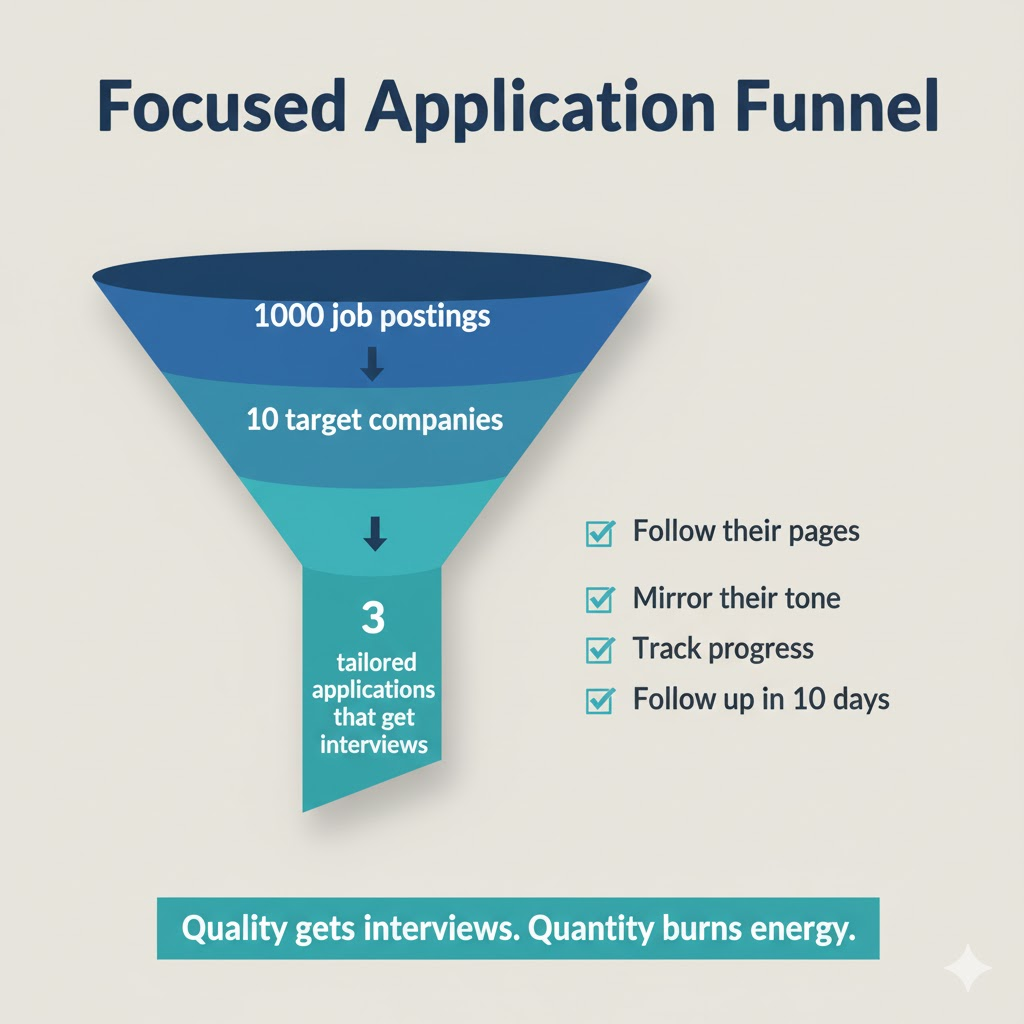
Interviews aren’t pop quizzes — they’re clarity conversations.
Here’s how to own yours:
You’re not auditioning for perfection — you’re showing alignment.
Nervous about your next interview? Let’s fix that.
With FutureEdge™, our one-on-one interview coaching program, you’ll learn how to anticipate questions, tell authentic stories, and communicate your value with confidence.
Because confidence isn’t luck — it’s preparation.
👉 Start Your Interview Coaching with FutureEdge™
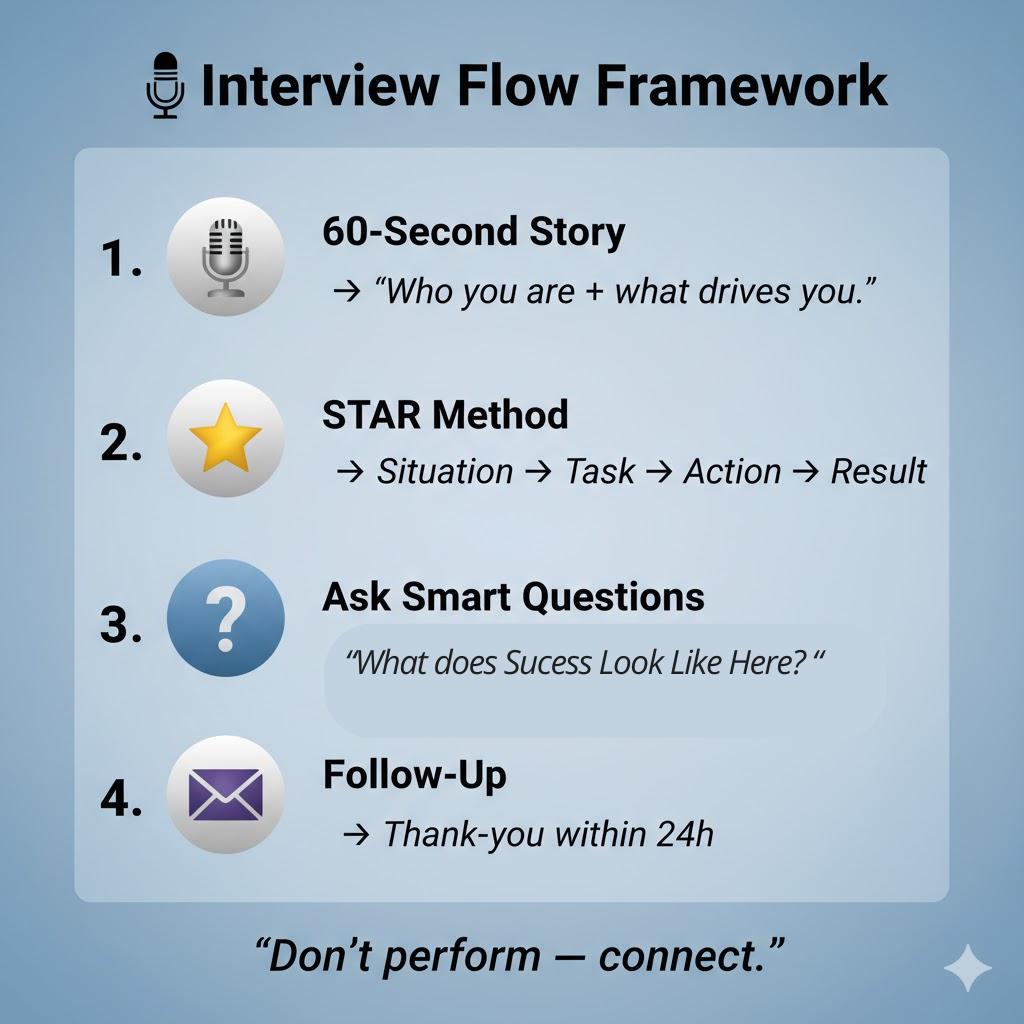
The job search can test your patience — and your confidence.
But persistence compounds.
Keep your rhythm simple:
Reflect weekly, rest when needed, and celebrate small wins.
You’re not behind — you’re building your future, one move at a time.
Start your week with structure and strategy.
The FutureStreet™ Morning Huddle gives you live accountability, focused goal-setting, and the energy boost to keep your search — and mindset — on track.
Clarity, consistency, and community — all before 9 A.M.
👉 Join the Morning Huddle Today
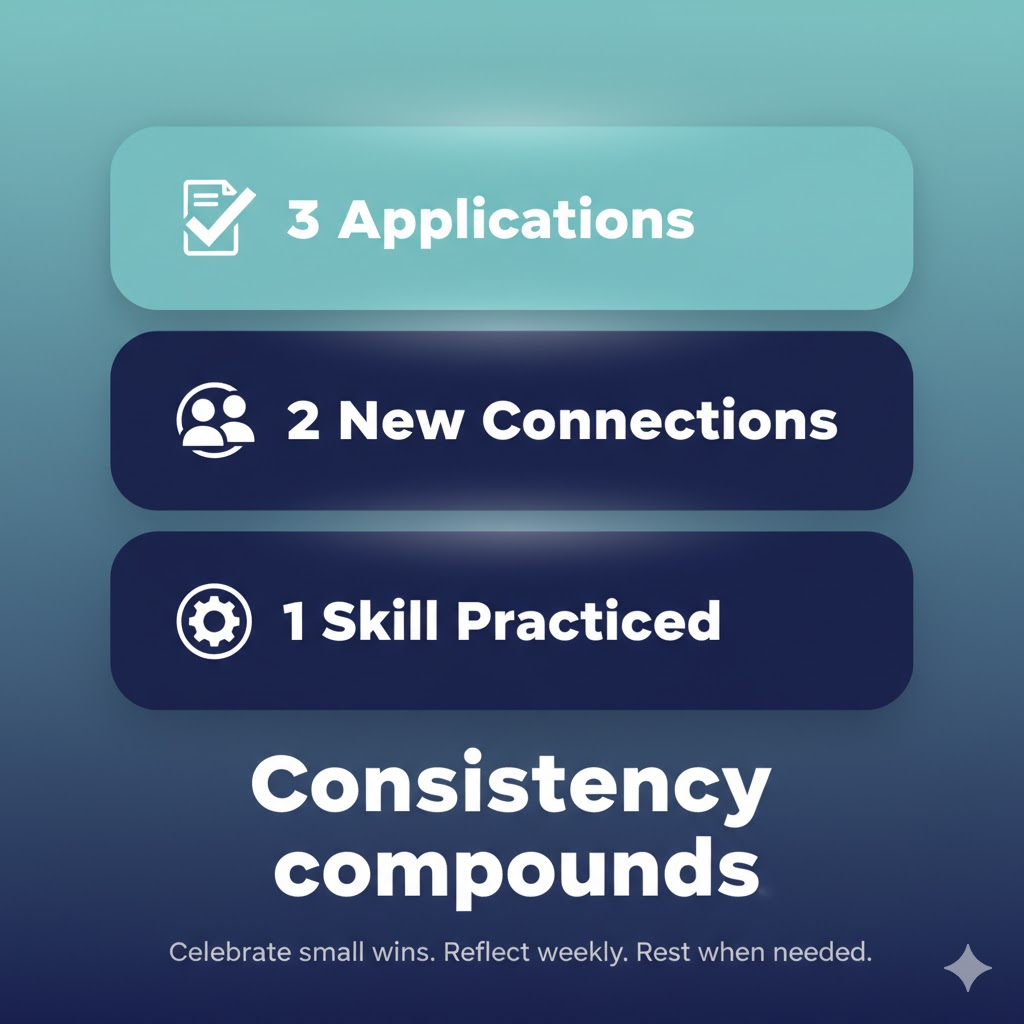
Everything you need to start strong:
You’ve got this — and we’ve got you.
Clarity creates confidence. Let’s build both.
